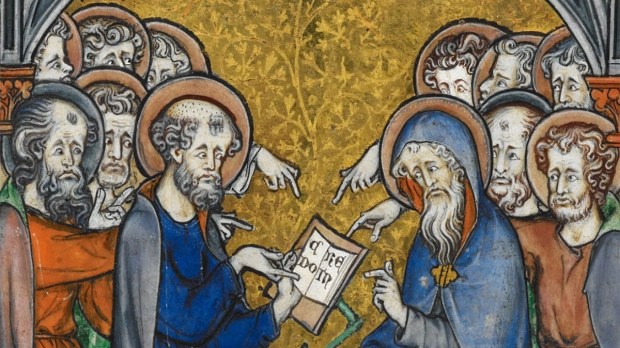Lenten Campaign 2025
This content is free of charge, as are all our articles.
Support us with a donation that is tax-deductible and enable us to continue to reach millions of readers.
The Nicene Creed is a cornerstone of Christian faith, reverently prayed weekly in countless churches around the world. Originating from the First Council of Nicaea, which took place in the year 325, this ancient profession of faith unites most Christians in a shared declaration of belief.
While many are familiar with the Creed itself, the historical and theological significance of Nicaea often remains shrouded in mystery. Here, we delve into three lesser-known facts about Nicaea that highlight its pivotal role in shaping the Christian faith.
The political backdrop: Constantine’s influence
Many might not realize the extent to which Emperor Constantine played a role in the Council of Nicaea. As the first Roman emperor to convert to Christianity, some historians claim Constantine had a personal interest in resolving theological disputes that threatened the unity of his empire.
The controversy over Arianism, which questioned the divinity of Jesus Christ, had created significant discord. Constantine convened the Council of Nicaea not only to address these theological issues but also to consolidate his political power. By bringing together bishops from across the empire, he aimed to foster a unified Christian doctrine that would, in turn, stabilize the realm. Thus, the Creed was not just a religious declaration. For Constantine, it was also a tool for political, social, and cultural cohesion.
The Nicene Creed’s evolution
The Nicene Creed, as recited today, is not exactly the same as the one formulated in 325. The original version was amended at the First Council of Constantinople in 381. This expanded Creed, often referred to as the Niceno-Constantinopolitan Creed, included additional clarifications about the Holy Spirit, affirming His divinity and role within the Trinity.
This evolution underscores the dynamic nature of early Christian theology, as the Church sought to articulate its beliefs in response to heresies and misunderstandings. Understanding this development offers a deeper appreciation of the Creed as a living document, shaped by the faith, experience, and intellect of early Church fathers in dialogue.
The role of St. Nicholas
One of the most intriguing and lesser-known participants of the Council of Nicaea was St. Nicholas of Myra – the historical figure behind the legend of Santa Claus. St. Nicholas was a staunch opponent of Arianism, and his presence at the council is often remembered through various legends. One popular story, though historically unverified, suggests that Nicholas was so outraged by Arius’ arguments denying Christ’s divinity that he punched Arius in the face. This legend goes to show the intense theological debates that characterized the council. St. Nicholas’ involvement reminds us that the figures we revere as saints were indeed deeply engaged in the crucial theological issues of their time.
The Council of Nicaea was a monumental event that transcended theological discussion, a pivotal moment in both religious and political history, with enduring impacts that continue to shape Christian doctrine and practice. By exploring the political context of Constantine’s involvement, the evolution of the Nicene Creed, and the passionate contributions of figures like St. Nicholas, we gain a richer understanding of Nicaea’s significance.
These insights deepen our appreciation for the Creed and highlight the vibrant nature of early Christianity. As we recite the Nicene Creed today, we are acknowledging a legacy of faith, of reason, of dialogue, and of devotion that spans the centuries.



